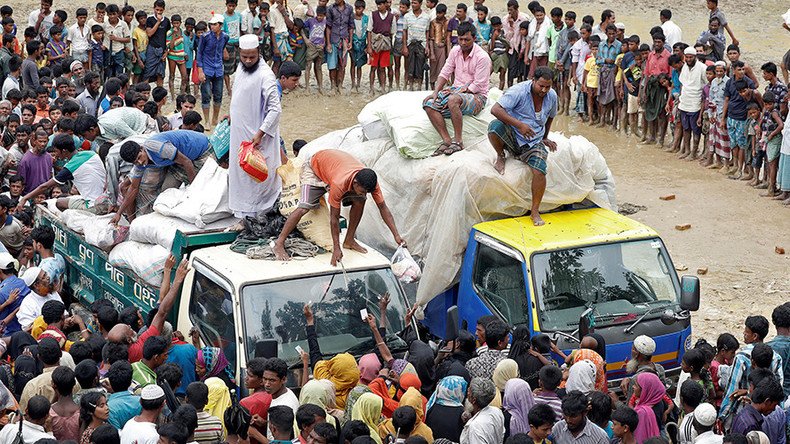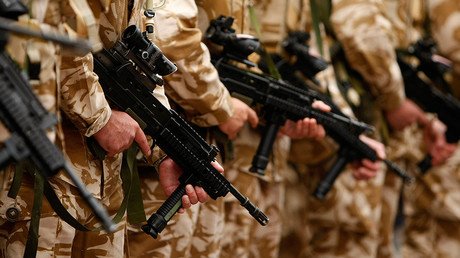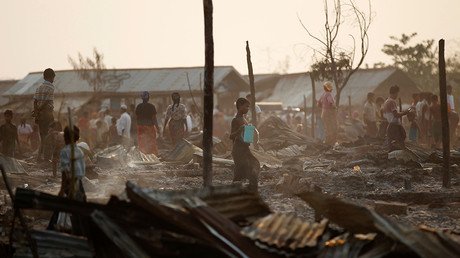More to come? US calls for ‘strong & swift’ UNSC action to end Myanmar crisis

US Vice President Mike Pence has called on the UN Security Council to take action to resolve the crisis in Myanmar, which led to hundreds of thousands of Rohingya Muslims fleeing their homes in recent weeks.
“The United States renews our call on Burma’s security forces to end their violence immediately and support diplomatic efforts for a long-term solution,” Pence told the UN Security Council Wednesday, using the old colonial name for the country.
“President Trump and I also call on this Security Council and the United Nations to take strong and swift action to bring this crisis to an end and give hope and help to the Rohingya people in their hour of need,” he added.
The vice president did not specify what action the US is calling for, but last time Washington used the words “strong and swift” actions was in relation to Venezuela in July. Sanctions against the country’s leadership followed.
Pence also told the UNSC that Myanmar’s leader Aung San Suu Kyi assured US Secretary of State Rex Tillerson on Tuesday that returning refugees have nothing to fear.
Myanmar’s military unleashed a crackdown on Rohingya settlements following an attack carried out by a group of Rohingya militants on a number of police posts in northern Rakhine on August 25.
UN human rights chief Zeid Ra’ad al-Hussein called the crackdown “clearly disproportionate” and “textbook example of ethnic cleansing,” as it led to around 400,000 Rohingya people fleeing to neighboring Bangladesh, according to human rights groups.
Last week, Amnesty International released satellite images which the group says show Rohingya villages set ablaze. The organization has attributed blame to Myanmar’s security forces, as well as “vigilante mobs,” saying it was done to drive the people out.
“When the military came, they started shooting at people who got very scared and started running. I saw the military shoot many people and kill two young boys. They used weapons to burn our houses. There used to be 900 houses in our village, now only 80 are left. There is no-one left to even bury the bodies,” Amnesty cited one unnamed 48-year-old man, saying his village was attacked on September 8.
The human rights group said the scale of destruction could not be independently verified due to governmental restrictions on outside access to the area.
On Tuesday, Aung San Suu Kyi broke weeks of silence on allegations of ethnic cleansing against the Rohingya population and delivered a speech in which she claimed that the majority of Rohingya villages had not been affected by violence. She refrained from criticizing the military, but said it had been instructed to exercise restraint and avoid “collateral damage” in its pursuit of insurgents.
Aung San Suu Kyi, who received Nobel Peace Prize in 1991, has drawn worldwide admiration for her long fight against military rule. Two years ago, her party had a landslide victory in Myanmar’s elections, which made her head of the country’s government. It is not clear to what extent she controls the military’s actions, however.
Rohingya Muslims have been largely treated as outsiders in the Buddhist-majority Myanmar. Most Rohingya were denied citizenship, leaving them stateless in a country where they were born.














